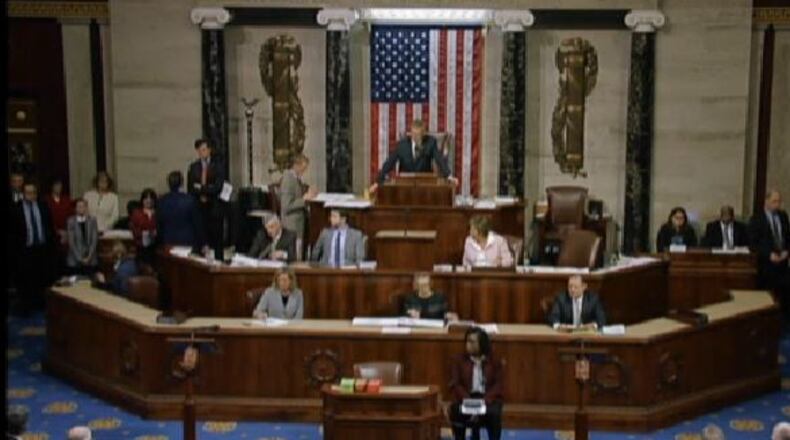Still trying to bring aboard reluctant conservatives, Republicans in the House on Monday night unveiled a series of changes to a GOP health care bill, accelerating a series of tax cuts and providing more money for tax credits to help older Americans buy health insurance, still aiming for a vote in the full House on Thursday.
"With the President’s leadership and support for this historic legislation, we are now one step closer to keeping our promise to the American people and ending the Obamacare nightmare," said House Speaker Paul Ryan.
The highly technical changes also included language dealing with limits on state Medicaid spending, including a provision designed to win over a group of Republicans from New York, by freeing counties in that state from being forced to contribute money for Medicaid operations.
States also be able to boost their Medicaid funding by five percent, by instituting work requirements for able-bodied adults who are getting such benefits.
The revised plan would also freeze Medicaid expansion under the Obama health law, preventing other states from getting access to billions in extra coverage dollars.
In the tax arena, the GOP changes would move to repeal the many tax hikes under the Obama health law now - in 2017 - rather than waiting until 2018.
As for a move to provide larger tax credits for older Americans - that was the stated goal of the GOP - but when you look in the text of the revised bill language, it isn't there.
The explanation of the bill says the revised language, "provides budgetary space for the Senate to increase tax credits for older Americans."
In other words, the Senate will have to work out the specifics.
But even as those changes were released, there were ominous signs from some rank-and-file GOP lawmakers on the House Freedom Caucus, as a number were still refusing to jump on board with the plan, just days before a scheduled Thursday vote.
"They haven't changed the bill's general framework. They don't have the votes to pass it," said Rep. Justin Amash (R-MI).
The changes seem certain to further reduce the amount of deficit reduction linked to the bill, which was at $337 billion over ten years - now that figure may drop to under $200 billion.
But GOP leaders were ready to deploy their secret weapon on Tuesday morning, as President Trump will speak to Republicans - and presumably urge them to vote for the health overhaul bill - despite their reservations.
About the Author
The Latest
Featured





